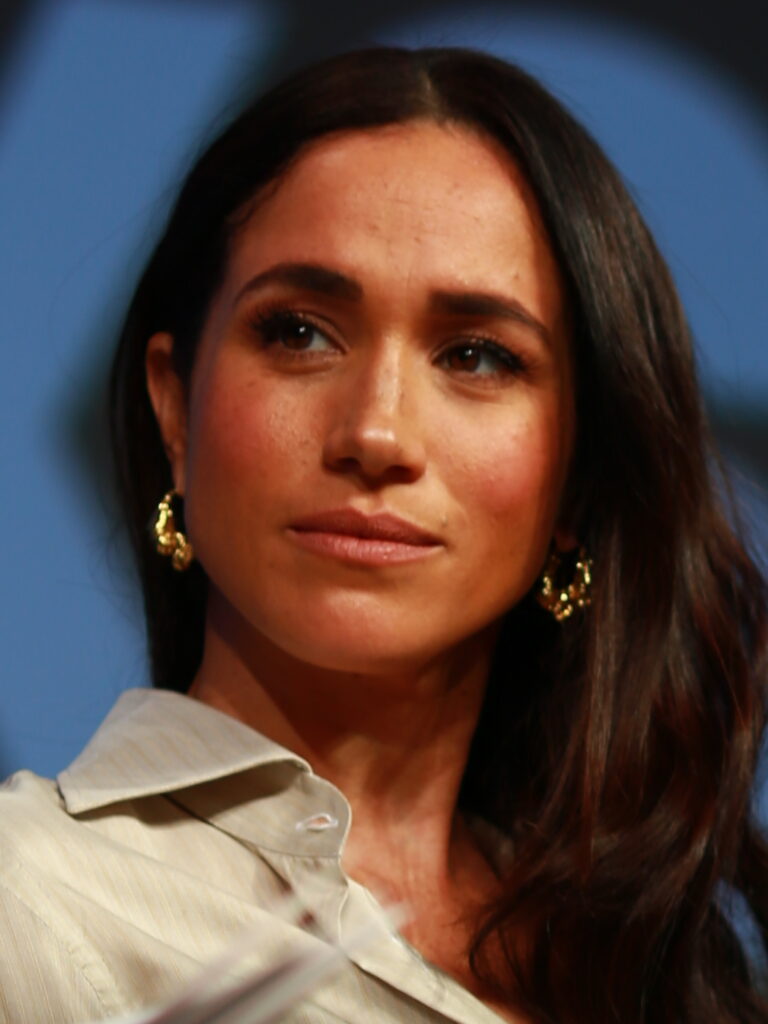Netflix’s decision to move forward with a second season of “With Love, Meghan” has stirred up a lively debate among industry insiders and fans alike. Despite the show’s less-than-stellar performance in Netflix’s Top 10 rankings, insiders reveal that behind the scenes, a well-planned strategy is at work. The decision to recommission the series is being viewed not merely as a gamble on ratings, but as a calculated move designed to leverage sunk production costs and capitalize on ancillary revenue streams linked to Meghan’s lifestyle brand.
A Dual-Season Production Plan
Industry experts have noted that the production of “With Love, Meghan” was never intended to be a one-off affair. According to Daily Mail’s Diary Editor Richard Eden, the filming process was meticulously planned from the start. “They hired a location, spent significant resources on a mansion, and even filmed enough material for two series at the same time,” Eden explained during a recent appearance on Palace Confidential. This upfront commitment suggests that the decision to release a second season was built into the project from the very beginning.
This dual-season production strategy underscores Netflix’s confidence in the content’s potential to draw audiences over time, even if the initial reception does not immediately place it among the platform’s top-ranking shows. By producing enough episodes to constitute two complete seasons, Netflix has mitigated the financial risk associated with uncertainty in viewership numbers.

Behind the Numbers: Financial Considerations and Brand Synergy
While ratings remain a critical metric in the world of streaming, Netflix’s decision to proceed with a second season reflects a broader business strategy. The streaming giant is known for looking beyond immediate viewership figures and considering long-term value and brand synergy. In this instance, Netflix appears to be banking on its financial interest in Meghan’s burgeoning lifestyle company.
The interconnectedness between the show and Meghan’s lifestyle brand is a crucial factor in this decision. As Eden pointed out, “Netflix has a financial interest in Meghan’s lifestyle company. They will make money from it when people buy the jams and sprinkly flowers or whatever.” This relationship means that even if the show does not secure a top spot in viewer rankings, it still serves as a powerful marketing tool that can drive product sales. In a world where content and commerce increasingly overlap, the streaming service is effectively turning the show into an extended advertisement for a suite of lifestyle products.
Expert Opinions: The Verdict from Inside the Industry
The opinions of industry experts further illuminate the reasoning behind Netflix’s decision. Alongside Richard Eden, industry commentator Jo Elvin chimed in with a perspective that reflects a pragmatic understanding of media production economics. “I don’t think they’d ever not broadcast something when they had already spent the money on it,” Elvin asserted, emphasizing that the production expenses have already been incurred. For Netflix, shelving or canceling the second season would simply translate into a loss on a sunk cost investment.
This perspective suggests that Netflix’s decision is as much about protecting its financial investment as it is about content quality or audience numbers. The logic is straightforward: if a significant portion of the budget has already been committed to filming, releasing the content—even with lukewarm viewer response—ensures that the company can still extract value from its investment through ancillary channels, including merchandise and licensing deals related to Meghan’s lifestyle brand.
The Calculated Risk of Recommissioning
Critics of the move argue that recommissioning a series that hasn’t captured the Top 10 spot may signal a misstep in audience engagement strategy. However, supporters of the decision contend that the approach reflects a deep understanding of the multifaceted value that a television series can deliver. The second season’s planned release in the autumn aligns with a broader trend in television programming, where shows are sometimes strategically scheduled to coincide with seasonal viewing patterns, maximizing exposure and potentially boosting later viewership figures.
This strategy could also be seen as a test case for Netflix’s willingness to support shows that serve dual purposes—both as entertainment and as brand extensions. In an era where streaming platforms are continually evolving, the decision to recommission “With Love, Meghan” may serve as an example for how future content can be developed with an eye toward integrated marketing and long-term financial returns.

Beyond the Ratings: A New Paradigm for Streaming Content
Netflix’s decision to proceed with a second season of “With Love, Meghan” highlights a shifting paradigm in the world of digital streaming. Traditionally, series are judged by their ability to consistently hit high ratings and secure a spot in the coveted Top 10 lists. However, as the media landscape evolves, so too do the metrics by which success is measured. For Netflix, the success of a show can now be gauged not solely by immediate audience numbers, but also by its potential to drive ancillary revenue and enhance brand identity.
In this context, “With Love, Meghan” represents a convergence of content and commerce—a model where a television show is intrinsically linked to a broader ecosystem of consumer products. This integrated approach not only opens up new revenue streams but also deepens the relationship between viewers and the brand, potentially fostering long-term loyalty and engagement.
The Broader Implications for Content Creators
The decision to recommission the series despite its moderate ratings is likely to have ripple effects across the industry. Content creators and production houses may take note of Netflix’s approach, recognizing that there is room for experimentation in how success is defined. Instead of being solely driven by immediate viewer metrics, the value of a project might increasingly be measured by its overall contribution to a company’s brand portfolio.
For new and emerging talent, this could signal an opportunity to develop projects that serve multiple functions. Creators might be encouraged to integrate elements that allow for cross-promotion with other business ventures or products, creating content that is not just entertaining but also commercially synergistic. This could lead to a new wave of innovative programming that blends storytelling with strategic marketing objectives.
The Road Ahead for “With Love, Meghan”
As Netflix prepares to roll out the second season of “With Love, Meghan” in the autumn, industry watchers will be keenly observing the show’s performance. Will the dual-season strategy pay off in the long run? Can the integrated model of content and commerce generate sufficient buzz to justify the initial investment? While the immediate response may be mixed, the decision to release the new season is a bold affirmation of Netflix’s commitment to exploring new models of content delivery.
Critics remain skeptical about whether the show can overcome its initial reception, while proponents believe that the true measure of its success will only become apparent over time. What is clear, however, is that Netflix is willing to embrace calculated risks and leverage every asset at its disposal—even if that means recommissioning a series that hasn’t yet achieved blockbuster ratings.
Conclusion: A Strategic Bet on Long-Term Value
Netflix’s move to recommission the second season of “With Love, Meghan” is emblematic of a broader shift in how content is valued in the digital age. It challenges the conventional wisdom that only immediate high ratings matter and highlights the potential of integrated content strategies to drive long-term financial returns. By committing to the release of a fully produced second season, the streaming giant is betting on the multi-layered benefits of content that doubles as both entertainment and brand marketing.
In the coming months, as the autumn release approaches and viewers have the opportunity to engage with the new season, the industry will be watching closely. The performance of “With Love, Meghan” could very well influence how future series are conceptualized and evaluated, paving the way for a new era where the lines between storytelling and commerce blur in pursuit of sustainable, long-term success.
Ultimately, Netflix’s decision represents a calculated bet on the future—a future where quality content is measured not just in immediate viewership, but in the lasting value it brings to a brand’s portfolio and bottom line.










